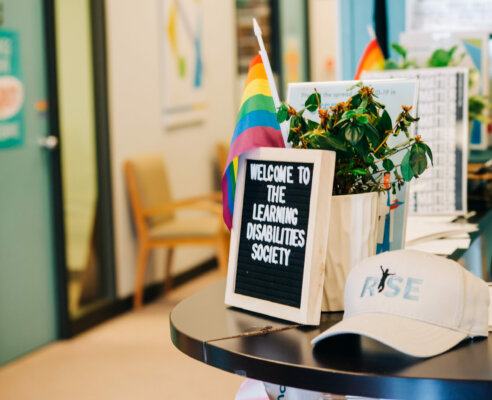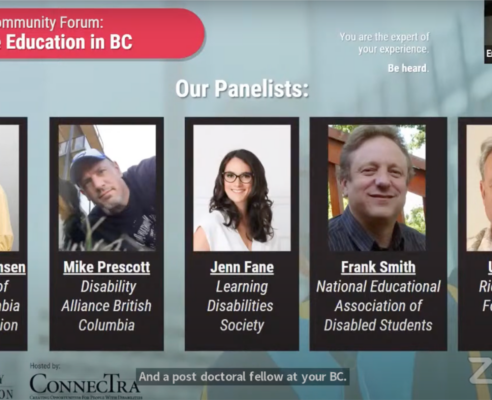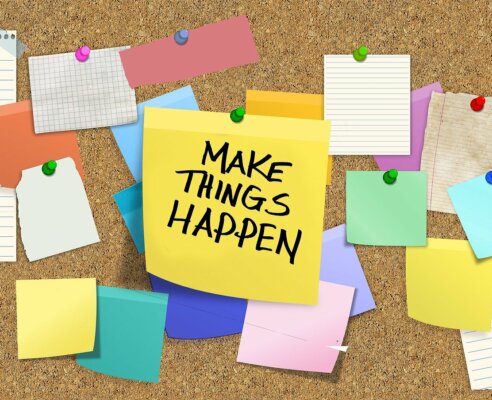For many families of young children, the infant and toddler years seem like the toughest. Between little sleep, feeding and potty training – raising the smallest humans is a stage many look forward to moving past. However, as families arrive at the preschool years (three-to-five), new sets of questions, challenges, and worries can emerge, while possibly still battling with the challenges of sleep, feeding, and toileting you had hoped you left behind!
While the preschool years are an exciting time when your child’s individual personality, interests, and strengths emerge, this is also a time where lots of questions about your child’s development, behaviour, and learning emerge. One of the biggest challenges that families of preschool children face is, after finally finding a spot in a high quality early years program, then learning that their child might need additional supports or identifying areas where the family may need more guidance about their child. These challenges have been exacerbated by the pandemic, where access to childcare and preschool, child health and development services, and early years screening and assessments have been increasingly difficult to both find and afford.
LDS’s Early RISErs program was developed by a team of interdisciplinary early childhood experts who are also parents. We understand from all angles the challenges young children and their families are facing. This post is dedicated to the most common questions and concerns we see and hear from families with young children, and the ways in which families are able to receive support for these challenges in our Early RISErs program.
How do I support my child with transitions?
For adults, transitions are generally a normal and expected part of everyday. We wake up, get dressed, eat/drink, and head out the door on our way. For young children, however, transitions (no matter how frequent or common place) can be an instigator of challenging behaviour such as anger, crying, screaming, refusal, or aggression. As young children also make the large-scale transition to starting school, these transitions become an increasingly rigid part of their days.
Supporting young children and their caregivers with transitions through modelling, strategies, and scaffolded support is a key element of Early RISErs. Opportunities to learn and practice transitions in an inclusive and supportive space with a high ratio of early years professionals allows children the space to grow in their ability to self-regulate during transitions and move between activities and places in a ways that reduce challenging behaviour.
Why does my child act completely differently at daycare/preschool than at home?
Have you received a note, comment, or incident report from your child’s care provider that surprised you? Did you think, ‘that doesn’t sound like my child,’ and are unsure how to further support your child with a behaviour, issue, or social interaction that you haven’t previously observed? Young children act differently outside of the home and away from primary caregivers. It is very common for a generally friendly child to suddenly be hesitant or struggle to interact socially in a setting with many children and only one or a few adults. It’s also common for a child who is generally able to self-regulate throughout the day at home to sometimes exhibit challenging behaviour in a group setting.
As a parent or caregiver, it is hard to understand what is happening to our child when we are not there, and this lack of information can be challenging when all we want is to support our children and help them to develop the skills they need to navigate social and educational experiences with increased independence. The Early RISErs program has been developed to have an ideal amount and length of activities and transitions to allow young children a chance to develop their skills and an opportunity for parents and caregivers to see first-hand where their child is at and identify with our early childhood professionals what targeted support could be helpful. Families learn strategies that can be employed at home and communicated to other care or educational environments to provide their child with more consistent support and communication across their daily lives.
Does my child need extra support? Where and how do I find it?
‘Should I be concerned…?’ is the most common phrase we hear when speaking with parents of young children.
What warrants a concern? Is this ‘normal’? Is there something more I can do for my child? These are all questions most families have encountered with their children. And then, if a concern persists, there are more questions. Does my child need to see a Speech and Language Pathologist? How do Occupational Therapists support children with sensory challenges? What is the difference between a behavioural consultant or a behavioural interventionist? How do I get an assessment for my child?
Navigating waitlists, referral processes, and identifying professionals and clinics can be extremely overwhelming for families who are seeking further supports.
To support families in connecting with and receiving specific information about further services or professionals that their child might benefit from working with, the Early RISErs team consists of a registered speech-language pathologist, early childhood educators, early childhood researchers, kindergarten teachers, behavioural interventionists, and a consulting occupational therapist who observes and meets with all children and families during the course of the program.
Developing an interest in reading, printing, letters, and numbers is a key focus in early childhood that and an important part of the Early RISErs program. However, the most crucial skills and areas for development for young children as they prepare for school is social and emotional learning. Social and Emotional Learning (“SEL”) is composed of 5 key areas which are important for all stages of life: self-awareness; self-management; responsible decision-making; social awareness; and relationship skills.
Because of the diversity of program staff, we are able to make targeted suggestions and referrals to families to help connect families with the supports they need quickly and seamlessly.
Is my child ready for school? What else can I do to prepare them?
For three-to-five-year-old children to develop these skills, they need to have opportunities to engage with diverse people and peers in a range of environments to develop their abilities to engage in play, navigate risk and conflict, increase their independence, and effectively communicate their needs and wants.
The Early RISErs program integrates these key social and emotional skills throughout the program to weave opportunities for growth throughout group times, play, structured learning activities, and transitions to support children in making successful transitions to their new school environment.
Questions about the Early RISErs program or your child’s learning or development? Don’t hesitate to reach out to us with any questions or concerns – call 604.873.8139, email us at info@ldsociety.ca, or explore resources on our website ldsociety.ca
Early RISErs cohorts start in October, January and April yearly. Learn more or apply here.
– Jennifer Fane, Director of Education
LDS is a community of dedicated professionals that write collaboratively. We recognize the contribution of unnamed team members for their wisdom and input.



